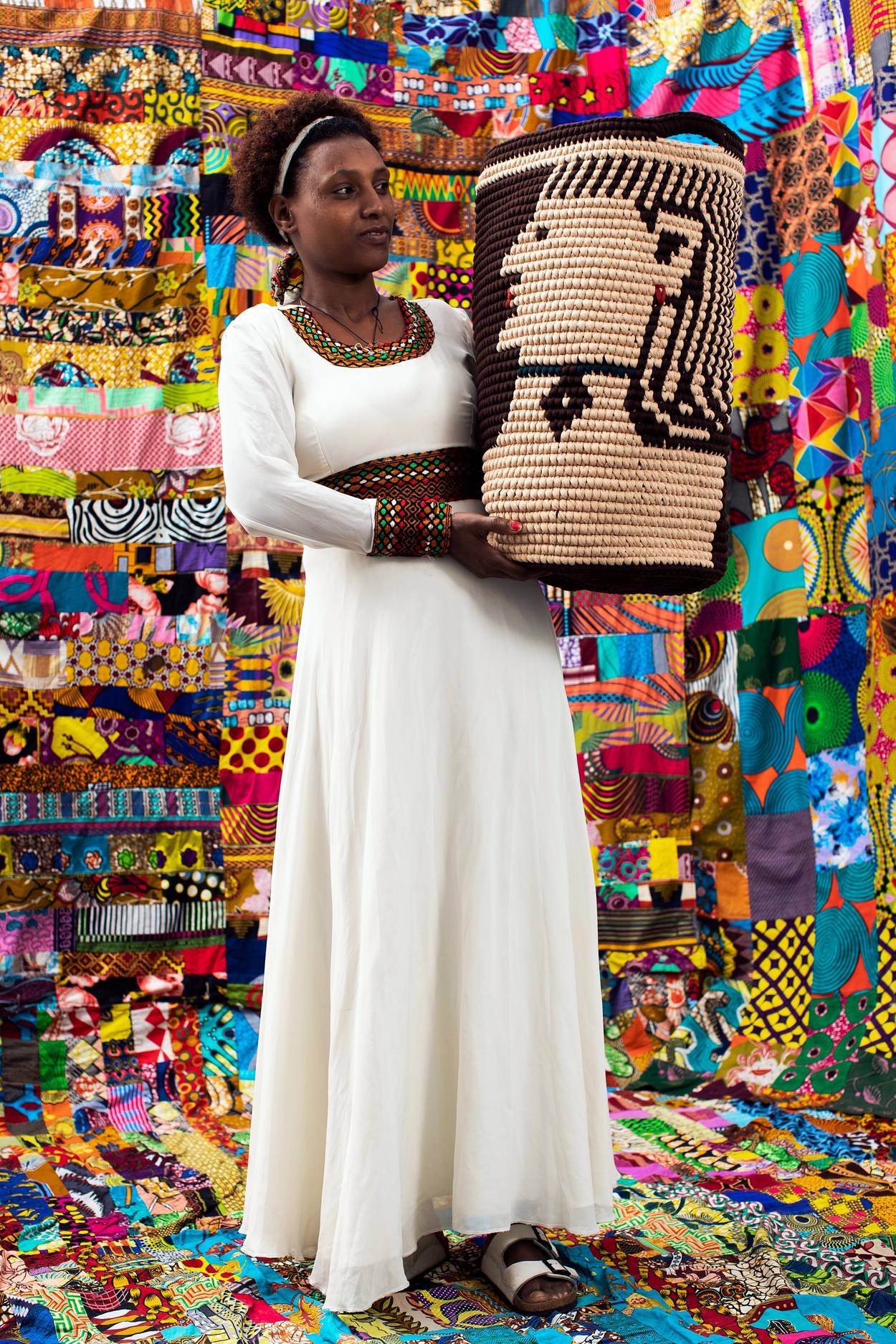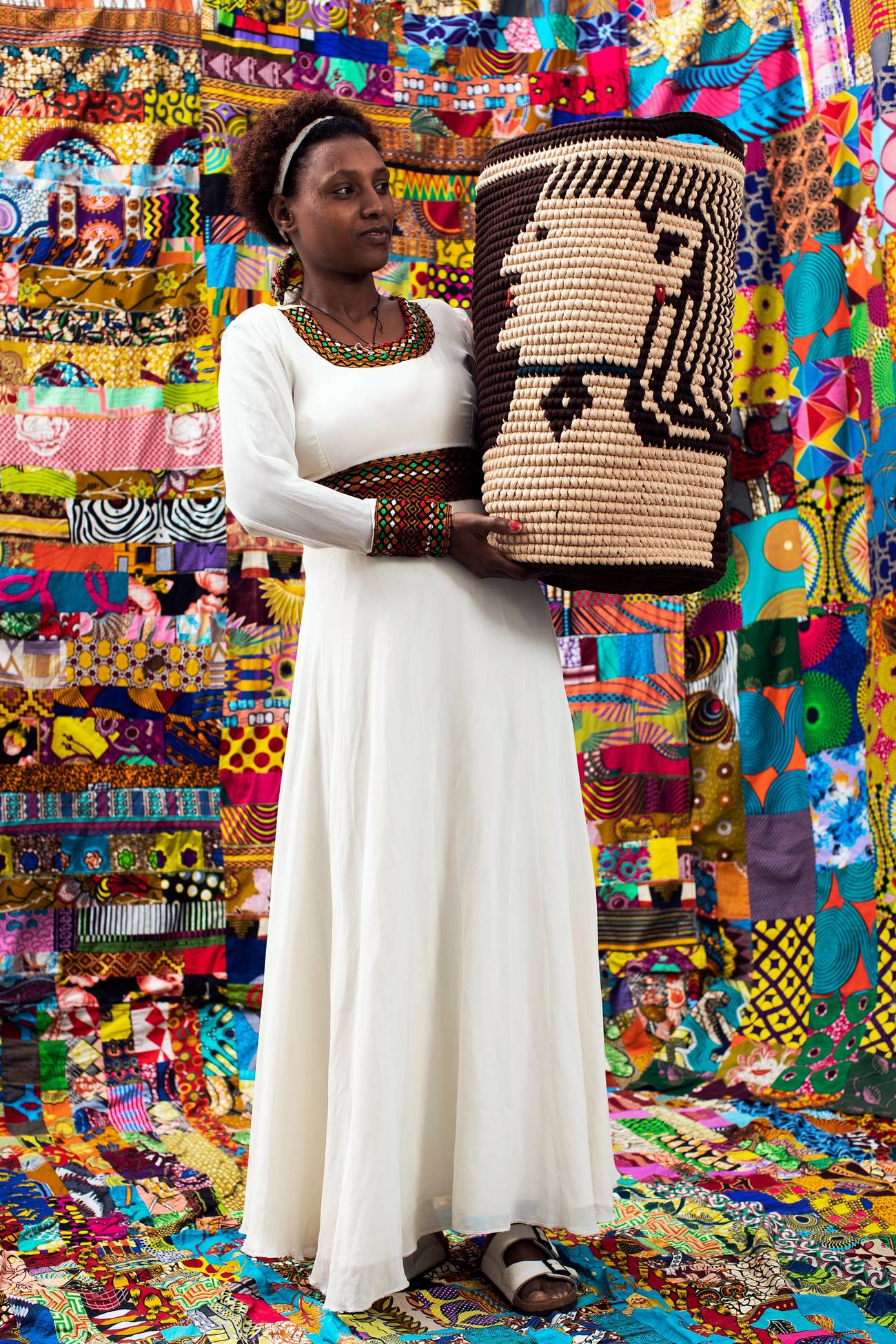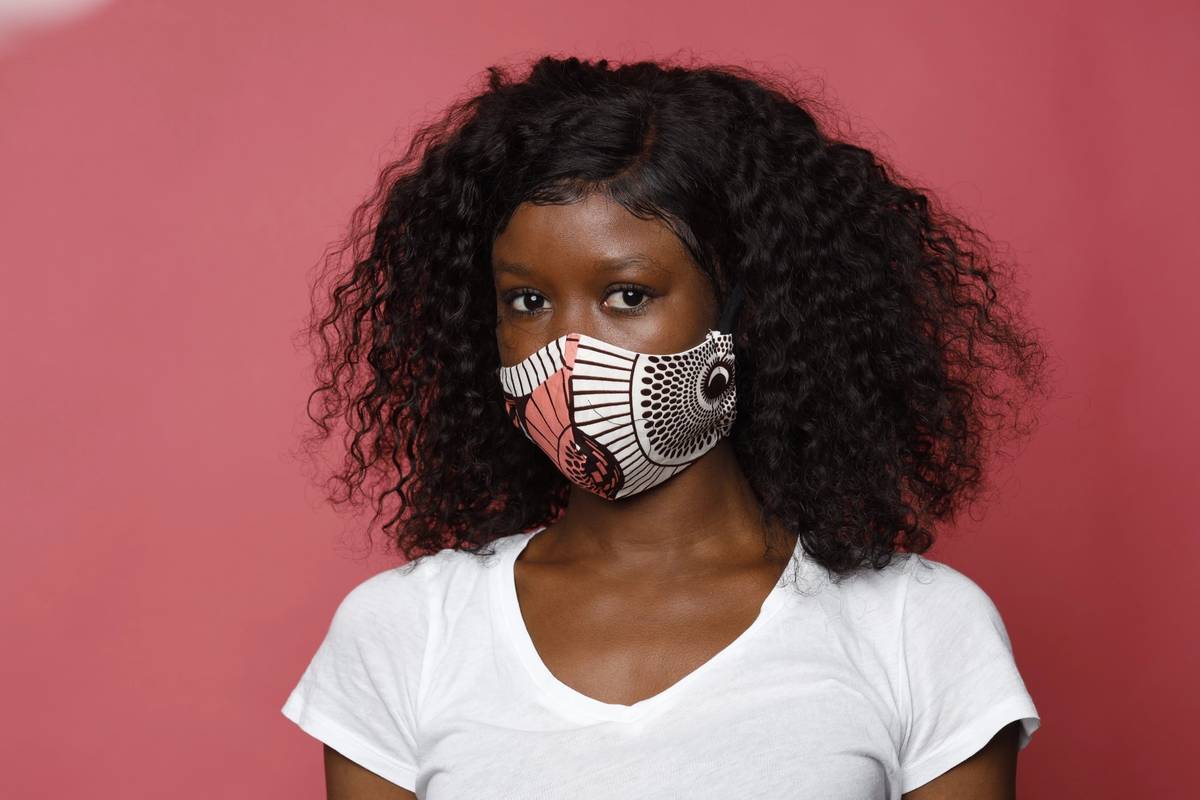The Women Behind the Masks
In Israel, a refugee women’s collective finds a new direction amid the pandemic




For Asmeret Tekleab, sewing is essential. When the 32-year-old asylum seeker from Eritrea sits down at her donated sewing machine in her apartment in Tel Aviv, her cramped living quarters, traumatic past, and some of her financial stress disappear.
“It really helps to have something to do,” said Tekleab, who left Eritrea more than a decade ago to escape a long and indefinite period of military service in a country run by a dictator and embroiled in what seemed like a never-ending conflict with neighboring Ethiopia. It doesn’t really matter what she is sewing, she said, as long as she is busy.
These days, that means sewing cloth face masks, now required by law in all public places in Israel to help prevent the spread of COVID-19. Across Israel, masks have been used to promote businesses—whether it’s clothing retailer Castro offering masks for men, women, and children, designers treating them as high-end accessories , or restaurants and hotels using them as advertisements. But Tekleab’s masks are a statement of survival and a will to keep going.

Tekleab is making the masks as part of the Kuchinate African Refugee Women’s Collective, a nonprofit organization founded by an Israeli clinical psychologist whose 300 members make baskets, rugs, and various crocheted items while also receiving counseling and other social services to address their impoverished living situations and the psychological trauma common among those who escaped from places like Sudan and Eritrea. The group also frequently hosted crocheting and weaving workshops, as well as traditional East African coffee ceremonies and Eritrean cooking classes at its headquarters and store inside a converted warehouse in South Tel Aviv, where many of the country’s approximately 36,000 asylum seekers, along with other migrant workers, live. But the pandemic, social distancing measures, and the closing of Israel’s borders to tourists put an end to those activities, forcing the women to spend their time isolated in their often crowded, small, and run-down apartments. Many of the women also rely on income from cleaning and other manual labor jobs, most of which have also been eliminated by pandemic-related lockdowns, social distancing measures, and economic downturn. They do not qualify for unemployment, health insurance, or other social welfare programs, as the Israeli government continues to debate their legal status.
“For many of these women, the coronavirus pandemic was a crisis on top of a crisis,” said Ruth Garon, head of marketing and event production at Kuchinate. So in order to survive—and help these women survive—the collective, which had recently received donated sewing machines, began making masks. Sewn from colorful African fabrics, mainly from Uganda and Rwanda, the masks are both beautiful and useful, she said. “We hope that through these masks more people will be exposed to us and the work we do.”
So far, they have made and sold nearly 1,000 masks. The collective also moved its shop online, which has resulted in more sales of baskets, rugs, and other items than they would normally get, Garon said. “Of course, nothing is really ever enough, but this is for sure helping,” she said. Because health regulations still prevent the cooperative’s members from gathering to sew, crochet, and weave, the organization has relied on a network of volunteers to deliver supplies to women in their homes.
For Tekleab, a single mother of two, this has been a lifeline.
“Kuchinate and this sewing is really my light right now,” she said. “Otherwise, I would just be sitting in my tiny apartment, with one tiny window and no air.”
Without work, she said she would likely fall again into the deep depression she experienced when she first arrived in Israel in 2011 after a long and harrowing journey that included time at a refugee camp in Sudan and violence at the hands of smugglers as she crossed Egypt’s Sinai desert. She later joined thousands of others like her in the run-down and poor neighborhoods of South Tel Aviv, and struggled to make enough money cleaning houses.
When she joined Kuchinate in 2017, and learned to sew and crochet, she gained not only a steady income, but also a community. Each week, the members gathered to sew and crochet together, where the group’s co-directors—a clinical psychologist and a Roman Catholic sister—also encouraged them to discuss and process the mental and emotional traumas of their migration. For now, those meetings are also on hold, as the group’s space is not large enough to accommodate the required 2-meter space between people. So Tekleab will continue sewing masks at home, grateful for the work and the opportunity to make a product people need.
“But I miss those meetings so much,” Tekleab said. “This is not just about the money or the help, but being together, being productive together, and getting a hug. Kuchinate is like our house.”
Sara Toth Stub is a Jerusalem-based American journalist who has written for The Wall Street Journal, Dow Jones Newswires, Associated Press, and other publications.